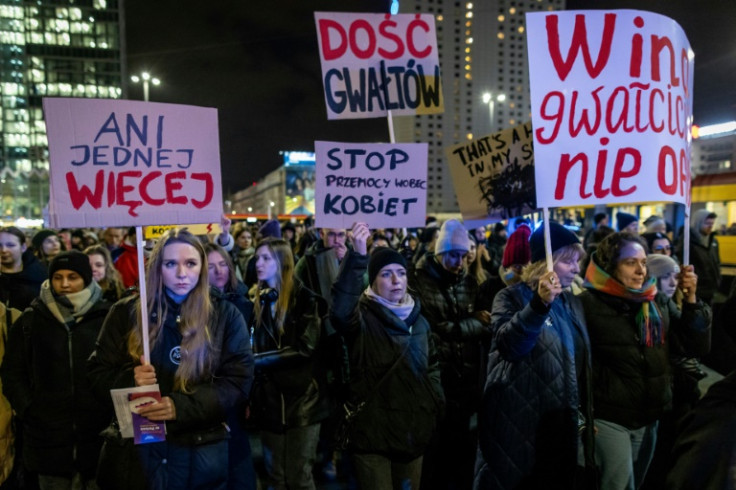
Around a thousand people on Wednesday rallied in Warsaw against sexual violence after the death of a raped Belarusian immigrant sent shockwaves through the community of Belarusian exiles in Poland.
25-year-old Liza, only identified by her first name, died in hospital last week after having been brutally attacked and raped while walking at night in Warsaw city centre.
A 23-year-old man has since been detained and charged with the assault as the attack sparked outrage among women's rights groups and the significant community of Belarusians fleeing their country for Poland.
Lighting candles and laying flowers, demonstrators gathered at the place where the attack had taken place to mourn.
"Liza came to Poland in search of a better life. And in Poland, her life was taken away from her," Maja Stasko, the protest's co-organiser, told crowd.
The participants, asked by the organisers to dress in black, held signs in Belarusian and Polish with slogans including "Women are not prey" and "I was just walking home".
According to official data, Poland in 2023 was hosting nearly 80,000 Belarusians, many of them fleeing for the neighbouring country out of fear of political repression at home.
"It was a pure shock for all of us," Anna, a Belarusian working in IT in Poland who declined to give her full name, told AFP of the attack.
"We fled from Belarus to search for peace here, and now we became victims of not the regime, but of men," the 25-year-old said.
The organisers said the Belarusians who fall victim to sexual violence abroad were facing additional obstacles as refugees, including distrust towards the law enforcement services.
"We have such experiences with the police that it is hard for us to believe that if we call the police, they will believe us and that someone will act on this," Nasta Bazar, a Belarusian activist, told AFP.
"I would really want every woman to know that there will always be women who will support them... and that there are Belarusian organisations out there that help," Bazar added.
The rally was joined by women's rights campaigners and participants from Ukraine, with around a million refugees from the war-torn country currently living in EU member Poland.







